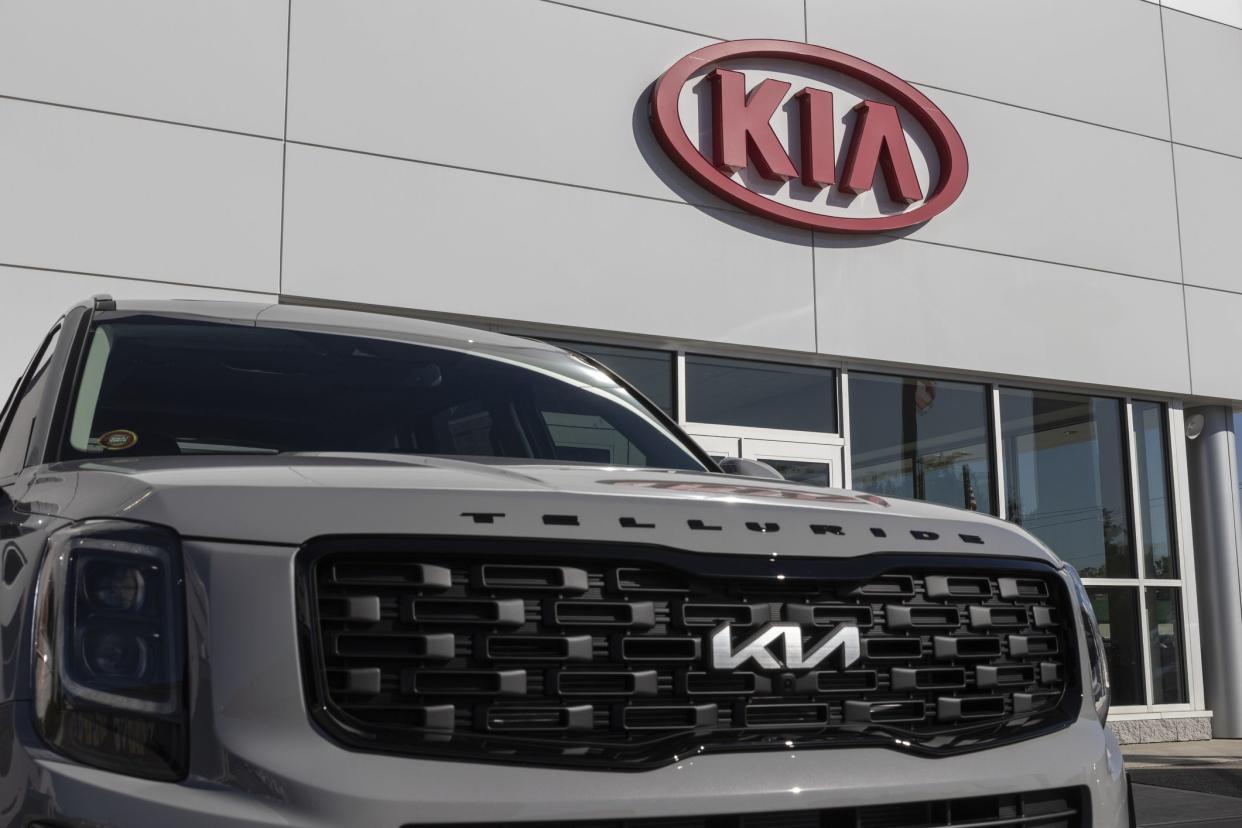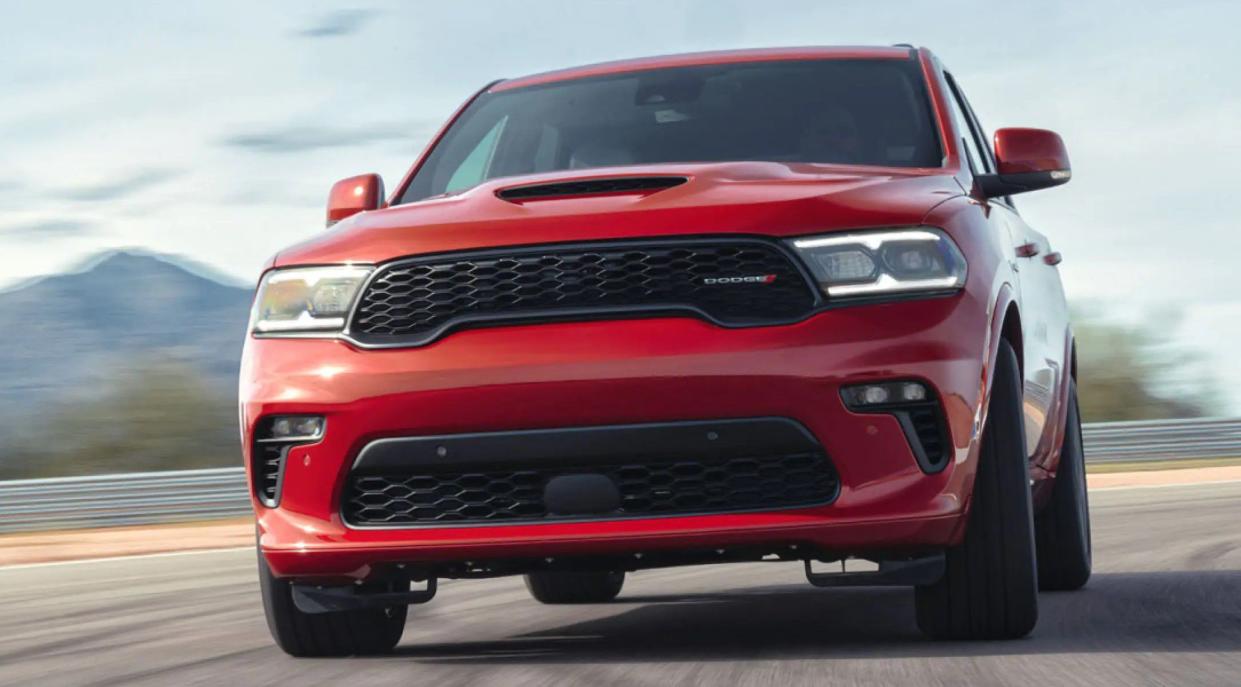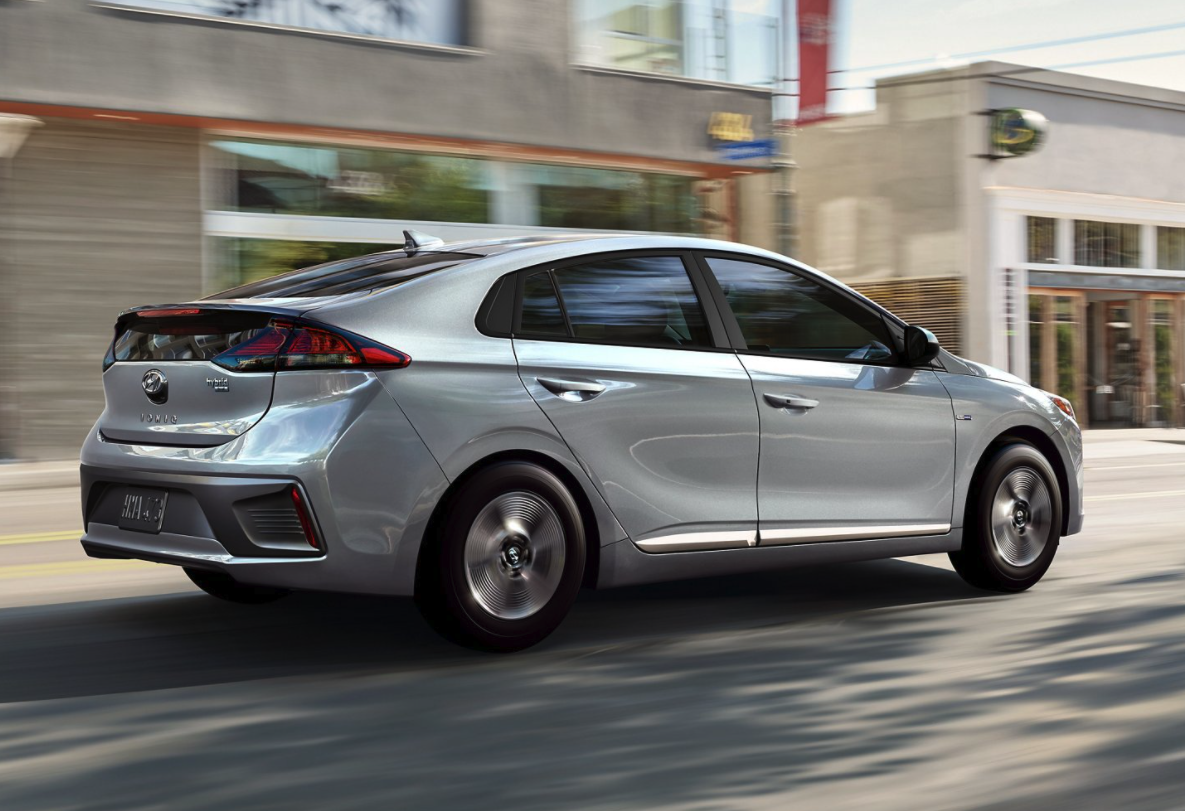These Car Brands Suddenly Became More Popular — Thanks to the Pandemic

Toyota, Honda, and Chevrolet were at the top of a recent survey of most-favored cars from CivicScience, but what stood out in the numbers were gains made since 2020 by companies many buyers overlook: Dodge, Nissan and the Korean automakers Kia and Hyundai. Nearly 5.3 million people gave their opinions on the automakers in 2020, followed by 3.3 million people last year. So far this year, some 3 million have weighed in.
While Toyota has a 57% favorability rating this year so far, Honda a 52.5% rating and Chevrolet a 47.7% rating, they weren’t that far ahead of Dodge, Kia, Hyundai and Nissan, which had bigger improvements from 2020 to point to — even if the upticks in favorability comes with a bit of an asterisk in the eyes of an automotive expert.
The improved positions probably owe something to a pandemic-induced shortage of semiconductors for car electronics and resulting shift in car lot inventory, said Joseph Yoon, a consumer insights analyst with Edmunds.
“A lot of other brands that were better-selling all ran out first, [after] their prices went up faster than they did for these four brands,” Yoon said in a Wednesday interview. “People always need cars to buy. And since the top cars weren’t available, they kept looking for cars that were, especially cars that met their budget — because their original budget no longer was viable for the current market.”
For these four brands picking up favorability, “it’s not so much that they’ve become suddenly more popular because they did something great,” Yoon said.
Still, if they didn’t have good vehicles to deliver, they wouldn’t have been able to capitalize on their competitors’ semiconductor woes — particularly in the case of Hyundai and Kia, which have customer loyalty numbers “noticeably above average compared with other mainstream brands, ” Yoon said.
Here are the makers with the biggest growth in favorability since 2020. What do you think of these makers? Tell us in the comments.
Related: Car Buyers Are Paying More Than Sticker Price — Here's How Much

Favorability in 2022 to date: 30%
Favorability in 2020: 23.9%
Improvement: 25.5%
The Kia Telluride SUV came out right before the pandemic and was a huge hit, providing “a kind of halo effect” for the rest of the lineup that’s been complemented in the past year and a half by the EV6, an electric SUV, Yoon said. A line of plug-in hybrids have added to Kia’ s luster “especially in the past couple of months as consumers have been getting slammed at the pumps.”
For more great auto stories, please sign up for our free newsletters.

Favorability in 2022 to date: 35%
Favorability in 2020: 29.6%
Improvement: 18.3%
Dodge has pared down its lineup in recent years to the Charger sedan, Challenger sports car, and Durango SUV, and all have sold well consistently — in fact, spacious seven-seaters such as the Durango are seen by Edmunds as the hottest style of family car. What’s giving the brand an extra kick is the recent release of an electric prototype for a Hornet crossover SUV due next year, leading to hints at the dealer level that the end of the internal-combustion Charger and Challenger models are in sight. “Traditionally, these are muscle-car customers. They don’t want to lose that,” Yoon said. Buyers aren’t just paying out because they think it’s their last chance, though. Yoon gives Dodge credit for focusing its brand “down to what really sells for them. That’s been the recipe for success.”
Related: Every Electric Truck and SUV on the Market – and More Expected Soon

Favorability in 2022 to date: 31.8%
Favorability in 2020: 27.7%
Improvement: 14.8%
Hyundai owns Kia, and a lot the brands’ success is paired. Along with the acclaim for the Kia Telluride comes acclaim for the Hyundai Palisade; with appreciation for the Kia EV6 comes appreciation for the Hyundai Ioniq 5, their answer to the Toyota Prius, Yoon said. “It’s a very interesting time for a lot a lot of automakers with the federal and state-level guidelines coming out about EVs. A lot of brands are focused toward pivoting to make sure that they don’t skip a beat with any of the incentives or changing winds in the industry,” Yoon said. “I’m very excited to see what’s coming.”

Favorability in 2022 to date: 38.5%
Favorability in 2020: 35.5%
Improvement: 8.5%
Nissan’s “big hack” of the industry, Yoon said, has been the Nissan Leaf — one of the more affordable EVs. “Our data shows that an average EV customer is paying over $60,000 for their car even if the base price might be $30,000. People aren’t buying base-model cars; they’re buying the ones with the extended range, with more battery capacity, or with more amenities, and that’s been really driving the prices up,” Yoon said. “In the case of Nissan, them having an EV that’s a little more affordable has really helped.”

Like Cheapism's content? Be sure to follow us.
